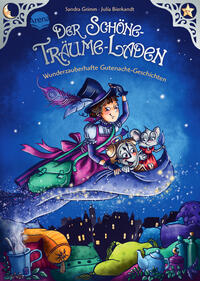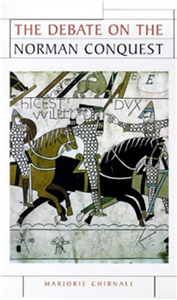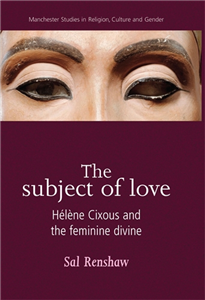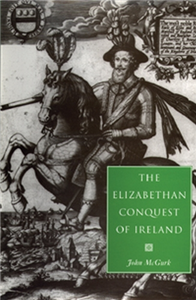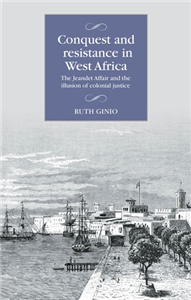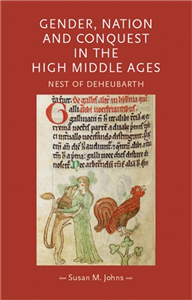Your Search Results
-
Promoted Content
-
Promoted ContentHumanities & Social SciencesJuly 2016
Cinema, democracy and perfectionism
by Joshua Foa Dienstag, Bert van den Brink, Anthony Laden, Peter Niesen, David Owen
-
 Trusted Partner
February 2021
Trusted Partner
February 2021Der Schöne-Träume-Laden. Wunderzauberhafte Gutenacht-Geschichten
by Sandra Grimm, Julia Bierkandt
Komm mit in den fabelhaften Schöne-Träume-Laden von Anna Zaubermond, Mauselinchen und dem frechen Wecker Ticktack! Hier werden kleine und große Träume wahr … Öffnet man die Ladentür ertönt das entzückende Ping-ping-ping! der kleinen Türglöckchen und schon befindet man sich im gemütlich-verträumten Reich der drei Freunde. Jeder Besucher ist hier willkommen: Ob ein zappeliges Elfenkind, ein ängstlicher kleiner Fuchs, das kribbelige Menschenmädchen Milly, der sehnsüchtige Kapitän Knüttel oder ein schlafloses Glühwürmchen - im Schöne-Träume-Laden gibt es für jeden einen liebenswerten Einschlaf-Tipp! Ein Vorleseschatz mit 22 originellen Gutenacht-Geschichten und großem Themenspektrum! Mit traumschönen farbigen Illustrationen von Julia Bierkandt auf jeder Seite und edler Silberfolienprägung auf dem Cover. Sowie kleinen DIY-Tipps rund um das Thema Einschlafen am Ende des Buches.
-
 Trusted Partner
Humanities & Social SciencesJune 1999
Trusted Partner
Humanities & Social SciencesJune 1999The debate on the Norman Conquest
by Marjorie Chibnall, Roger Richardson
The debate on the Norman Conquest is still ongoing. Because of the great interest that has always been shown in the subject of conquest and its aftermath, interpretations have been numerous and conflicting; students bewildered by controversies may find this book a useful guide through the morass of literature. In the medieval period writers were still deeply involved in the legal and linguistic consequences of the Norman victory. Later the issues became direcly relevant to debates about constitutional rights; the theory of a "Norman yoke" provided first a call for revolution and, by the 19th century, a romantic vision of a lost Saxon paradise. When history became a subject for academic study controversies still raged round such subjects as Saxon versus Norman institutions. These have gradually been replaced in a broader social setting where there is more room for consensus. Interest has now moved to such subjects as peoples and races, frontier societies, women's studies and colonialism. Changing perspectives have shown the advantage of studying a period from the late 10th to the early 13th century rather than one beginning in 1066. ;
-
 Trusted Partner
Humanities & Social SciencesFebruary 2025
Trusted Partner
Humanities & Social SciencesFebruary 2025Empire and subject peoples
Herbert Adolphus Miller and the political sociology of domination
by Jan Balon, John Holmwood
The book outlines the sociological arguments and political activities of the US pragmatist sociologist, Herbert Adolphus Miller (1875-1951). Miller was part of the milieu of Chicago sociology and involved in its studies of race and immigration. He took a distinctly more radical approach and developed a novel political sociology of domination in which he set out a critique of empires, the plight of subject minorities and the risks associated with the inevitable nationalist responses. Where others have identified with the 'internationalisation' of nationalism, Miller sought to make the nation 'international'. He was actively involved in movements for racial justice, Czechoslovakian independence, the formation of the Mid-European Union of subject peoples, as well as support for Korean and Indian independence. He was dismissed by Ohio State University for his activism in 1932.
-
 Trusted Partner
Humanities & Social SciencesMarch 2009
Trusted Partner
Humanities & Social SciencesMarch 2009The subject of love
Hélène Cixous and the feminine divine
by Sal Renshaw
The Subject of Love: Hélène Cixous and the Feminine Divine is about abundant, generous, other-regarding love. In the history of Western ideas of love, such a configuration has been inseparable from our ideas about divinity and the sacred; often reserved only for God; and rarely thought of as a human achievement. This book is a substantial engagement with her philosophies of love, inviting the reader to reflect on the conditions of subjectivity that just might open us to something like a divine love of the other. Renshaw follows this thread in this genealogy of abundant love: the thread that connects the subject of love from 5th century B.C.E. Greece and Plato, to the 20th century protestant theology of agapic love of Anders Nygren, to the late 20th century poetico-philosophy of Hélène Cixous. This study will be of particular interest to academics and students of the history of gender, cultural studies, criticism and gender studies ;
-
 Trusted Partner
Humanities & Social SciencesApril 2009
Trusted Partner
Humanities & Social SciencesApril 2009The Elizabethan conquest of Ireland
The 1590s crisis
by John McGurk
This book is about the impact of the Nine Years' War on central and local government and society in the English and Welsh shires in the 1590s. It contains fascinating new insights into the centrality of Ireland to England's problems in the crucial last decade of Elizabeth I's reign. However, this is in no sense a conventional military history, but rather a history of the social impact of the war and the strains it put upon the Elizabethan government. Based on painstaking primary research, it also covers the recruitment of levies for Ireland, their shipping, their service in Ireland and the limited extent of aftercare given to the sick and the wounded. The book therefore helps towards an understanding of why the Elizabethan conquest took so long to complete and why it proved to be more severe than at first intended. ;
-
 Trusted Partner
Trusted Partner
-
 Trusted Partner
Trusted Partner
-
 Trusted Partner
Humanities & Social SciencesJuly 2025
Trusted Partner
Humanities & Social SciencesJuly 2025Conquest and resistance in West Africa
The Jeandet Affair and the illusion of colonial justice
by Ruth Ginio
This book is an enthralling account of a legal scandal, which erupted in colonial Senegal in 1890 and reached the French metropolitan press and the parliament. The murder of a colonial administrator, Abel Jeandet, by one of his soldiers led to the brutal and illegal executions without trial of the killer and two local dignitaries. The volume follows the fascinating story of Ndiereby Ba, the widow of one of the dignitaries, who with the help of powerful métis men in the capital Saint Louis sued the French administrators who had supervised the executions for the murder of her husband. Through this captivating tale the book articulates the French expansion into West Africa, the resistance to colonial rule both violent and non-violent, and the lack of interest on the part of French politicians in the brutal conquest of a territory they know nothing about.
-
 Trusted Partner
The ArtsJune 2021
Trusted Partner
The ArtsJune 2021Claire Denis
by Martine Beugnet
Claire Denis is one of France's most acclaimed and original filmmakers. Since her remarkable debut success with 'Chocolat' (1986), she has produced an impressive series of features which have been intriguing, visually striking, and often highly controversial (including 'Beau Travail' (2000) and 'Trouble Every Day' (2001)). Beugnet provides a thematic and stylistic framework within which to consider Denis' work, as well as a comprehensive analysis of individual films. She highlights the resonance of Denis' films in relation to ongoing debates about French national identity and culture, and issues of postcolonial identity, alienation and transgression, as well as examining their exploration of the interface between sexuality, desire and sensuality. This is an essential introduction to Denis, and a sophisticated and illuminating study of her work to date.
-
 Trusted Partner
Humanities & Social SciencesOctober 2013
Trusted Partner
Humanities & Social SciencesOctober 2013Gender, nation and conquest in the high Middle Ages
Nest of Deheubarth
by Susan Johns, Pamela Sharpe, Penny Summerfield, Lynn Abrams, Cordelia Beattie
Nest of Deheubarth was one of the most notorious women of the Middle Ages, mistress of Henry I and many other men, famously beautiful and strong-willed, object of one of the most notorious abduction/elopements of the period and ancestress of one of the most famous dynasties in medieval Ireland, the Fitzgeralds. This volume sheds light on women, gender, imperialism and conquest in the Middle Ages. From it emerges a picture of a woman who, though remarkable, was not exceptional, representative not of a group of victims or pawns in the dramatic transformations of the high Middle Ages but powerful and decisive actors. The book examines beauty, love, sex and marriage and the interconnecting identities of Nest as wife/concubine/mistress, both at the time and in the centuries since her death, when for Welsh writers and other commentators she has proved a powerful symbol. ;
-
 Trusted Partner
January 1994
Trusted Partner
January 1994Den Laden schmeissen
Ein Handbuch für Frauen, die sich selbständig machen wollen
by Sichtermann, Barbara; Sichtermann, Marie; Sichtermann, Brigitte
-
 Trusted Partner
April 2001
Trusted Partner
April 2001Den Laden schmeissen
Ein Handbuch für Frauen, die sich selbständig machen wollen
by Sichtermann, Barbara; Sichtermann, Marie R; Siegel, Brigitte
-
 Trusted Partner
Trusted Partner
-
 Trusted Partner
Trusted Partner
-
 Trusted Partner
Trusted Partner
-
 Trusted Partner
January 1988
Trusted Partner
January 1988Den Laden schmeissen
Ein Handbuch für Frauen, die sich selbständig machen wollen
by Sichtermann, Barbara; Sichtermann, Marie; Siegel, Brigitte
-
 Trusted Partner
Trusted Partner
-
 Trusted Partner
Trusted Partner





